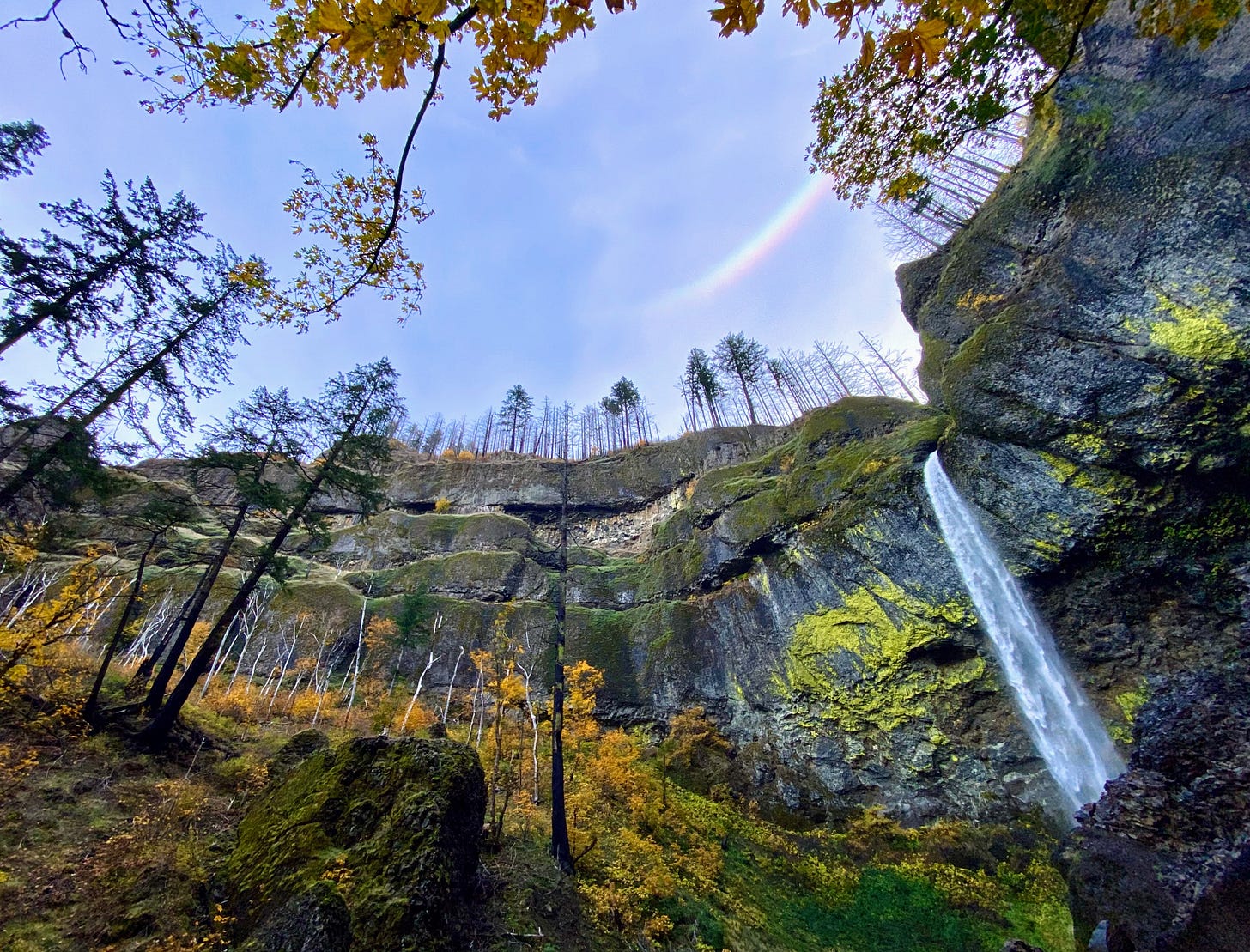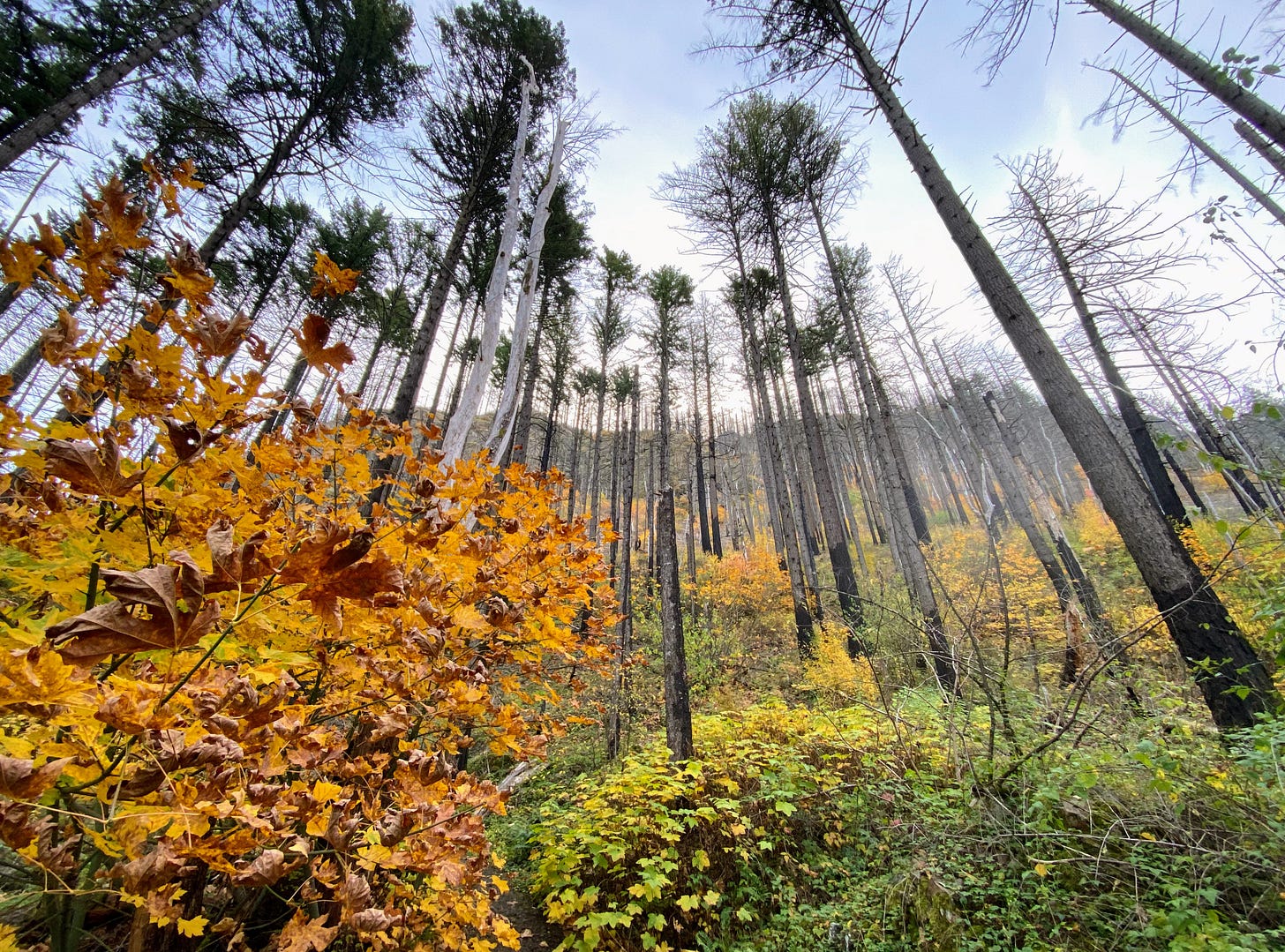Fighting Fire
November 2024
This last week, I traveled to Lewiston, Idaho to research a story I wanted to write about the effects that last year’s Gwen wildfire had on the area. Specifically, the wineries there. I wrote about the wine region when it was in its infancy years ago, and it’s a place that, for many reasons, I have strong connections to. In addition to numerous other properties and structures, the fire claimed some of the most coveted vineyards and a cornerstone winery before it was extinguished.
I knew what I was getting into accepting the assignment. Fire has been responsible for several heartbreaking losses in my world. Because of that fact, though I knew it wouldn’t be easy, I felt implored to tell the story.
Perhaps in an act of defiance or an attempt to take power back, I decided not just to write the story about the wildfires in Lewiston, but also visit yet another of my favorite places that was claimed by fire a few years back.
On the drive home from Idaho, I stopped to visit Elowah Falls in the Columbia River Gorge, my first visit since the trail was reopened. The fire revealed views I had never imagined and topography I had not previously noticed, and it cleared the way for a relatively new and attractive understory that was proudly displaying flamboyant flashes of autumnal color.
Post-fire forest scenery becomes visually appealing again with time, albeit in an unconventional way. As with all forests, there is a fair amount of death intertwined with life, though something about an afterburn presentation feels off. It doesn’t look natural, even though with consideration given to causation, it very much is. But I was expecting all of that. I’ve also detailed several times how there is always beauty in the regrowth. What I wasn’t expecting to find, however, was a new perspective on fire. An almost embarrassingly obvious one.
Fire removes and reshapes without will or want. It does not behave with benevolence or maliciousness. Rather, it simply acts in accordance with its conjuring. A recognition I had made about the ocean a while ago, but for some reason, never understood it to be a trait shared by her brother element. Perhaps because for me, with fire it’s personal. Had I lost loved ones or treasured places to the sea instead of the flame, my misplaced ire and frustration would have been redirected accordingly.
It was only after talking with people who had been impacted by fire so recently and walking through the blackened, pale snags and colorful leaves at the scene of one of my first personal losses to it that some things were finally revealed to me. And I released fire from bearing any responsibility for losses in my life, and I may have freed myself in doing so.
The people of Lewiston and its wine commonwealth have displayed remarkable examples of community spirit and resilience in the wake of tragic loss. It’s a story that deserves to be told, and I can’t wait to read it. But I don’t think that I’m the one to tell it. Not now, and not for the reasons I had wanted to, anyway. Perhaps I will get to pen a version someday, from the perspective of a man more at peace.
Again, I recognize that this revelation is somewhat obvious, but this entire time I have been unable to see the forest for the scorched trees. I now know that there is nothing to be won in this war. I can write stories without feeling the need to prove something or claim a moral victory. And I can walk trails without a defiant or angry spirit.
With fire representing transformation and the ocean symbolizing fluidity, there are lessons I can learn from both. But there will be no recovery realized or retribution relished from fighting an ongoing emotional battle with fire. So I think I’ll stop now.





